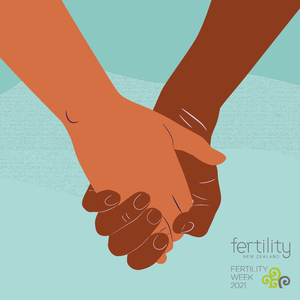Fertility New Zealand walks alongside all people facing fertility challenges.
Four things you can do to help
Be available, and be able to just listen without always giving advice, no matter how well intentioned. The most valuable gift you can give is your attention. There is nothing you can say that will change what has happened or is happening, but just being available to listen without making judgements is very valuable. Show you care. Accept that sometimes people may want to discuss infertility, they may or may not want to discuss a negative result, and there will be times when they do not want to talk about infertility at all. Respect this; but let them know that you care about what is happening to them at this time and that you will be there to listen if they wish you to.
Think of how they may feel at family and child centred celebrations. Leave the choice of attending special occasions up to them. Keep inviting them but give some thought to how some ‘adults only’ occasions can be enjoyed. Think about how to involve them in conversation; it can be difficult to engage in conversation if the occasions are always centred around children and babies. Consider their feelings during pregnancy and birth announcements.
If the journey has been lengthy, there is a major diagnosed condition or they lack the requirements (eggs/sperm) for conception, they may require an egg donor, sperm donor or surrogate. Often the infertile person will wait for people to offer, rather than asking them directly if they would consider donating. If this is a possibility for you, you may like to learn more about it here.
Suggest they seek professional help if their grief or depression seems disabling over a long time. All fertility clinics in NZ have professional counsellors who are able to assist those suffering from acute or chronic depression. Whilst depression is not uncommon, if it is interfering with day-to-day life or has gone on for a long time then professional help may be needed. GPs are also good contact points for your family member or friend if they are struggling. Let them know they are not alone.


